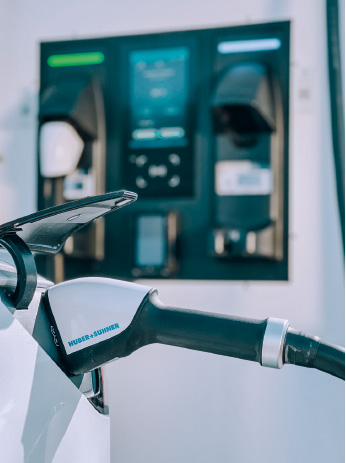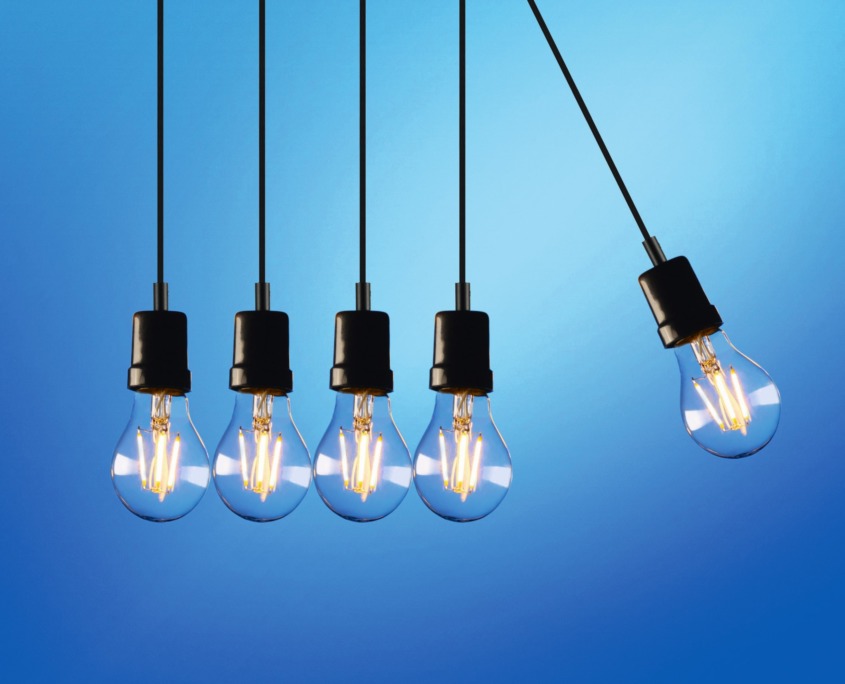Supercharging the energy transition
by Dr. Andrew Belt
Around 300 kilometres south of Wiesloch in neighbouring Bavaria is the slightly larger town of Kempten, which, like Wiesloch, is little known outside of the state it resides in and can be associated with innovation in powering cars. Since 2021, the largest town of the Allgäu has hosted the headquarters of Numbat – a start-up which specialises in providing ultrafast electric vehicle (EV) charging solutions.
Like Bertha’s landmark car journey as a precursor to the huge growth of cars and petrol stations, the work being done by Numbat is at an early stage of EV ownership, which will only become more and more common, and anticipates this trend by supplying the infrastructure to support this.
15 million EVs in Germany by 2030
In Germany alone, the government is targeting at least 15 million EVs on the road by 2030. In October 2023, there were 1,307,901 EVs in Germany – more than four times the amount of EVs in 2021.
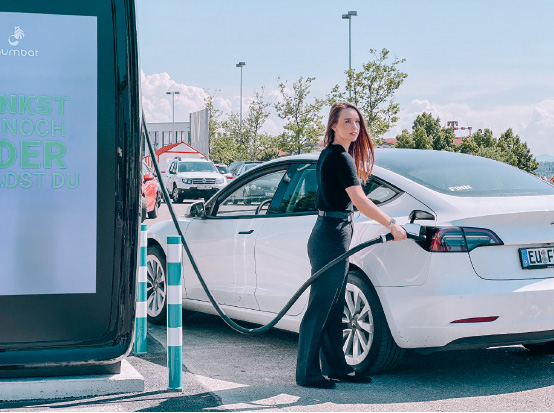
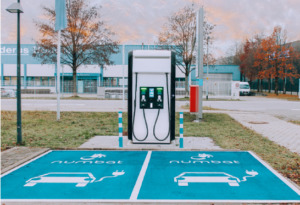
A continuation of this rapid growth will be necessary for the government to meet its target, but of more immediate concern is the shortage of public charging stations. As of September 2023, Germany had 56,480 public charging stations – which roughly equates to one public charging station per 23 EVs, some way off the International Energy Agency’s (IEA) recommendation of one public charging station for every 10 EVs.
As highlighted in the IEA’s ‘Global EV Outlook 2023’ report, ‘deployment of public charging infrastructure in anticipation of growth in EV sales is critical for widespread EV adoption’. The report notes the trend that the ratio of EVs per public charging station increases in line with increases in EV ownership – or put simply, the charging infrastructure is not keeping pace with the growth of EV ownership. Consequently, the report warns: ‘growth in EV sales can only be sustained if charging demand is met by accessible and affordable infrastructure, either through private charging in homes or at work, or publicly accessible charging stations’.
This widening gap in the speed of growth between EVs on the road and public charging stations to support them, and the damaging consequences to Germany’s EV ambitions of not bridging this, was acknowledged at the German Association of the Automobile Industry (VDA) New Year reception in January when Transport Minister, Volker Wissing, answered a question on what the government could do to bolster the country’s EV market with: “Charging infrastructure.”
Slow implementation of fast-charging solutions
When you consider that 61% of households in Germany have no possibility to charge privately and need public charging points, this need only becomes more acute. And all the above data points include slow charging solutions. When considering the provision of fast-charging points – the convenience of which makes them an even greater accelerator for EV take-up – the numbers are even more stark. In 2023, there were 12,983 fast-charging points in Germany, meaning there is roughly one fast-charging point for every 101 EVs. With 4,571,729 EVs forecast to be on the road in Germany in 2025 and 21,506 fast-charging points forecast to serve them, this figure becomes one fast-charging point for every 213 EVs – a huge growing chasm miles away from the IEA’s recommendations, and a potential blocker to Germany’s ambitious goals.
Removal of subsidies balanced out by growth in competition and cheaper EVs
While the rate of growth of EV sales in Germany is forecast to drop this year, largely due to the removal of subsidies by the government, sales will still continue to rise and the hope will be that the 15 million target by 2030 is still achievable. As with the government subsidies to boost the nascent solar panel industry in the early 2000s, the removal of subsidies to support EV sales is recognition that take-up has been strong and that the sector can stand on its own two feet.
Greater competition will help bring prices down, with high prices another barrier to entry for would-be consumers, and, on this, there are promising signs, not least in the plans for expansion into Germany by Chinese EV manufacturer, BYD. The manufacturer is targeting Germany as one of its growth markets, with significant price drops on its EVs in the country introduced at the beginning of the year, the creation of its factory in nearby Hungary and a charm offensive as one of the main sponsors during Euro 2024 – the men’s national football tournament being held in Germany. Fellow Chinese EV manufacturers, Nio and MG, have recently entered the German market, increasing the range of affordable models.
Numbat’s innovative solution
So, with EV sales continuing to rise rapidly and the conditions conducive in supporting the German government’s aims, a speedy solution is required for public charging stations. And Numbat is one such company well placed to be an accelerator on this front.
Numbat’s charging stations include two charging points and pioneer battery-based solutions that enable a degree of independence from electricity grids. Grid reliance can be a stumbling block in both rural and urban locations, but Numbat’s energy storage capabilities enable its charging solution to be connected to any low-voltage power connection and flourish in these poorly served parts of Germany, without the requirement for lengthy and costly grid upgrades.
A Numbat charging station can produce up to 300 kilowatts (kW) of charging power and has up to 200 kilowatt-hours (kWh) battery storage. This charging power can provide up to 80% of an EV’s battery capacity – which, using a Tesla M3 as a typical EV example, equates to approximately 335 kilometres’ usage – in just 20 minutes.
KEY STAT: In 2023, there was roughly one fast-charging point for every 101 EVs. In 2025, there is forecast to be roughly one fast-charging point for every 213 EVs.
In addition to the high-power charging revenue stream, Numbat’s innovative technology generates revenues from digital out-of-home (DOOH) advertising and energy management services – the former via two, 75-inch screens on each station and the latter by setting up a virtual power plant by connecting batteries, which makes it possible to trade on the spot market and provide peak shaving and grid balancing services.
The batteries enable the production of an adequate energy supply for ultrafast EV charging requirements – not a given if having to rely only on the grid. In addition to storing and distributing power from the grid, the batteries are able to utilise energy created by the solar panels on the rooftops on the adjacent properties operated by the retailer or location partner. And the batteries are managed in a way which allows them to achieve a lifespan three times longer than other similar batteries.
It’s little wonder then that investors have been quick to get involved. Paul-Josef Patt, one of Germany’s most successful technology investors, joined Numbat in a first round of financing with his company, eCapital, and the first investor was Christoph Ostermann who, in 2019, sold the battery storage specialist, Sonnen, for a mid-three-digit million sum to Shell. Experts in EV charging are also impressed, with Markus Emmert, board member of the German eMobility Association (BEM), telling German business newspaper, Handelsblatt: “Numbat is not alone in its approach, but it is innovative and at the forefront.”
PATRIZIA investment
PATRIZIA also sees value in Numbat, having closed a transaction in October 2023 to invest over €70 million, alongside a circa €70 million debt facility provided by a syndicate of German banks led by DAL (Deutsche Anlagen Leasing), in a rollout programme with the cleantech start-up. This rollout specifically targets the deployment of 400 ultrafast Numbat EV charging stations at 200 Tegut supermarkets across Germany.
“In a few years’ time, the most attractive locations will no longer be available, and we will not be able to create as much value. In addition to the timing being right, we also needed to find the right opportunity that fits our strategy, and we found this with Numbat.”
The investment benefits from a long-term exclusivity agreement with Tegut to install and operate ultrafast EV chargers at their existing and future supermarket locations, with Numbat managing the rollout and operations of the Tegut EV charging portfolio. The roofs of the supermarkets are expected be fitted out with solar panels, with the energy created feeding back and being stored by the batteries in the EV charging stations. The ultrafast charging stations offer convenience for EV drivers, who can do their shopping and return to almost fully charged vehicles. This investment has been placed through PATRIZIA’s newly created EV charging platform, Corymbia.
Synergies with PATRIZIA’s convictions
The investment marks PATRIZIA’s entry into the EV charging sector, which is consistent with two of the long-term ‘world in transition’ megatrends – energy transition and digital transition – underpinning the company’s investments.
It is also consistent with PATRIZIA’s mid-market infrastructure focus, whereby active asset management is undertaken to scale up strong entrepreneurial businesses requiring the capital to go to the next level.
The deal is seen as only the beginning of a long-term partnership between PATRIZIA and Numbat, with the investment manager having secured the right to fund further rollout programmes in partnership with Numbat. PATRIZIA is also in the enviable position of being able to call upon its expertise in both infrastructure and real estate to work in tandem and realise the potential of EV charging moving forwards. With this deal, for example, PATRIZIA was able to draw on its real estate knowledge across the due diligence process, as well as gain insights from the central data intelligence team when assessing the attractiveness of charging station locations and be supported in understanding the retail landscape in Germany.
“The race to secure the best EV charging locations is taking place right now,” explains Anne Grandin, a Senior Director at PATRIZIA Infrastructure. “In a few years’ time, the most attractive locations will no longer be available, and we will not be able to create as much value. In addition to the timing being right, we also needed to find the right opportunity that fits our strategy, and we found this with Numbat.
“We benefit from a 20-year exclusivity contract with a strong location partner, and we see a massive opportunity to add value through our hands-on active asset management approach. Beyond the Tegut rollout programme, our ambition with Corymbia is to invest in further EV charging rollouts and, more broadly, become a provider of smart energy solutions.”
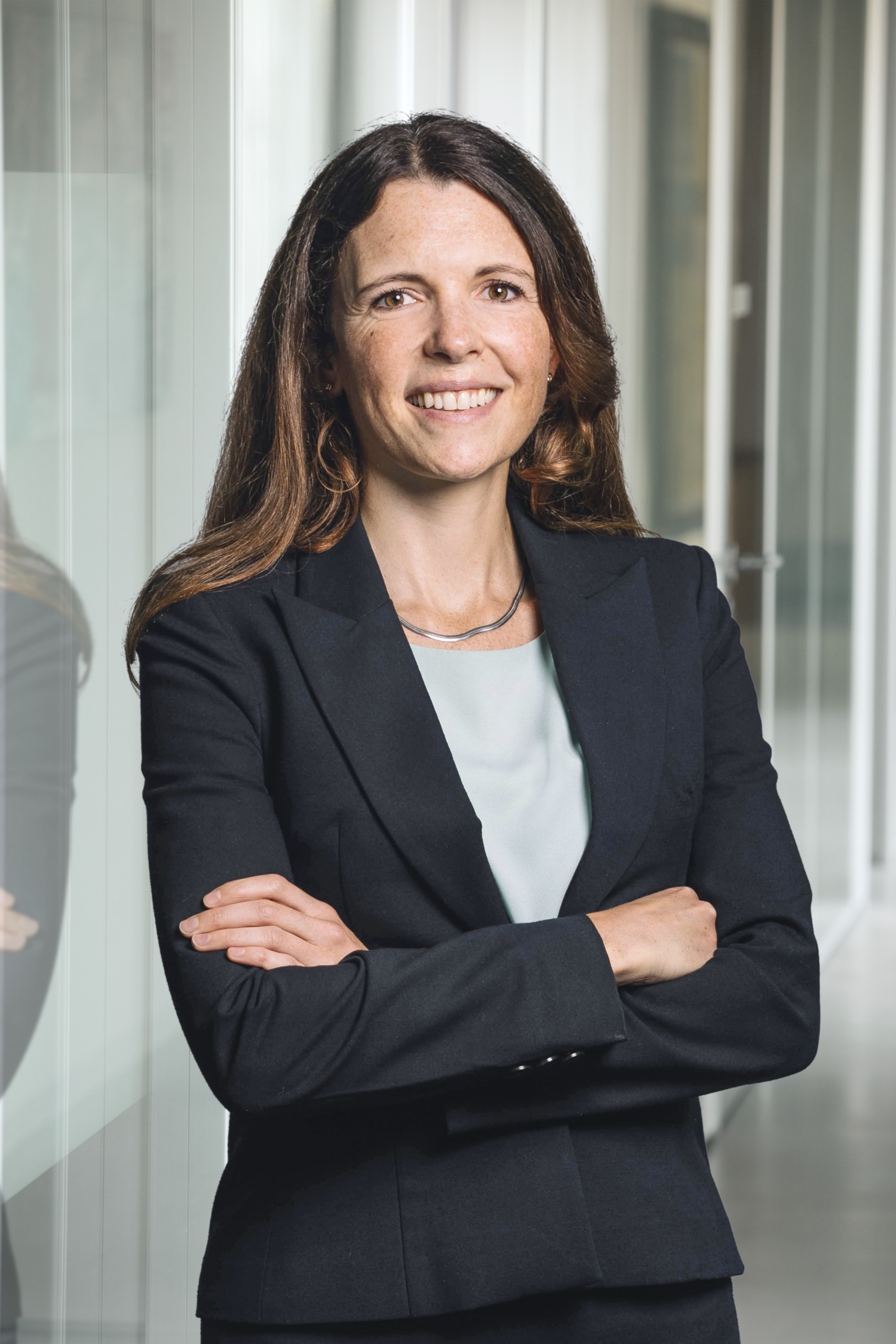
Anne Grandin, Senior Director at PATRIZIA Infrastructure
Rapid growth
Numbat was only founded in 2021 by business economist, Martin Schall, and engineer, Dr Maximilian Wegener, but has already grown to more than 130 employees in five office locations in Germany, including its HQ in Kempten. Similarly rapid growth is required to supply the infrastructure needed for Germany’s EV transition to succeed. Numbat is providing ultrafast solutions, PATRIZIA is accelerating its growth. With EU legislation banning the sale of new petrol and diesel cars from 2035, and other countries also driving for greater adoption of EVs, they could account for two-thirds of global car sales by 2030, and further collaborations between PATRIZIA and Numbat could go beyond Germany’s borders.
“We see many opportunities for us to expand,” Anne adds. “We need to install EV charging across our property portfolio, which extends all over Europe and also into APAC. Numbat is looking to scale up beyond Germany and we are keen to support them in their European ambitions.”
The spark in Kempten, then to tackle Germany before more of Europe, and maybe the world? The implementation of ultrafast charging solutions is going to be rapid, so strap in for the ride.

